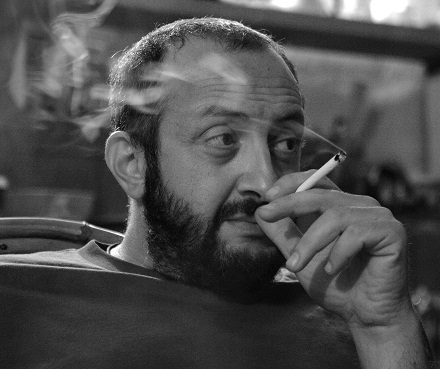
Saakashvili is meeting Obama on January 30. The agenda announced on the White House webpage names issues such as: 20 years of diplomatic relations, the U.S. – Georgia Charter, Georgia’s contribution to operations in Afghanistan, U.S. support for Georgia’s territorial integrity, and upcoming elections, writes Giorgi Margvelashvili, rector of Georgian Institute of Public Affairs.
The list is quite extensive, nevertheless, Georgian public opinion concentrated on two issues, and even speculates on which of these two will be dominating the discussion – security or democracy. What will this meeting be and how will its members act? Will Obama perform as a descendant of the Founding Fathers, of Woodrow Wilson, or will he talk hard about current interest and military geopolitics? Will Saakashvili talk about Georgia’s national interests or try to negotiate his political future or severance package?
The dichotomy is probably too simplistic, and probably any acting politician, even the most idealistic one, is engaged in realpolitik and naturally has to defend his national interests, as well as the concerns of his party and of individual political actors. But the question is not about them – the participants at the meeting, but about us, and specifically about us, the People of Georgia, what do we have to stand for and what do we want of this meeting? The question has been there for the last two decades – democracy, national interests, partnership obligations, realpolitik, and historic choice – what is our goal or priority? I believe that we, the people, are in a much more comfortable position of choice, than the acting politicians, since we are not required to deliver and can root our motivations in our own interests. So let us shape how these in some instance conflicting political logics can come together:
Primarily, democracy and national interests: I believe that these are identical in contemporary context and from the perspective of an ordinary Georgian citizen. The logic being: If we consider democracy as a form of individual’s engagement and linkage to the state, than it is naturally identical to the national interest, to consolidation of the nation. Consolidating the nation equals keeping it viable and strong, being able to confront upcoming challenges. Often, politicians do the opposite: they build national integrity by raising the temperature and consolidating the population in the face of a common enemy. Yet this should be considered a negative form of consolidation, in contrast to a positive and more long-lasting unification by integration. Hence, in the context of a positive measure of strengthening and unifying the nation, the democratic process is an absolutely indispensable mechanism.
Now, let us consider the existing political context in the region and our role in a developing geopolitical drama. What could Georgia’s role be in the game of powers – the U.S., Iran, Russia, France, Israel? What’s in it for Georgia and where do we fit in this context? The confrontation is beyond my competence or knowledge and possibly is even not known to each participant and is lost in complications of international politics and geopolitical interests. So, as a Georgian what should I look forward to?
Essentially, I would hope that the confrontation does not allow the Russian Federation to threaten my national integrity. I would like not to create one more enemy – Iran — and to keep my strategic partner, the U.S., happy and loyal to me in the future. All of this is ambiguous in these ominous times. Georgia’s military potential is the least in the region, and taking into consideration the vulnerability of our state, and the uncertainty of our international security guarantees, it seems that it would be best if we keep out of the present confrontation.
Our national security seems to be rooted in our integration in western structures – NATO, the European Union. Yet, in this context, our participation on the Asian battlefield does not seem to bring us any higher level of integration or security. We have to become part of Euro-Atlantic culture, yet not by warfare, but rather by peace, meaning, by the development of real democratic governance, free market, civil society and integration in European systems. Asian conflict and engagement in it, further confrontation with Russia, might both be interesting to western powers but don’t seem to bring Georgia along the lines of the European family.
So, from the perspective of an ordinary Georgian citizen not well-versed in complicated labyrinths of world politics, what I want from the Obama–Saakashvili’s meeting is what was declared in the White House Statement: further partnership, strengthening of democracy and reconfirmation of Georgia’s integrity. Things might be much more complicated at the time being, and political experts are qualified to read between the lines, yet from my perspective, a democratic development means the national integrity and national interest of Georgia, as stated many, many times before. So that is what I as a Georgian hope will be discussed in Washington.
Giorgi Margvelashvili is rector of Georgian Institute of Public Affairs (GIPA) and has a PHD in philosophy from Tbilisi State University.

